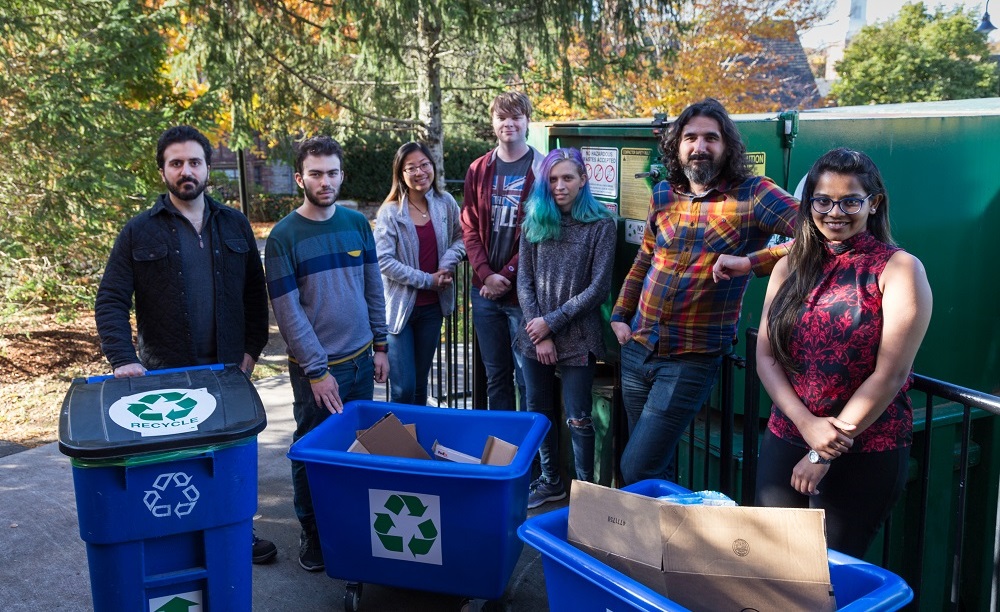Dr. Berk Çalli, Robotics Engineering, develops a public interest robotics perspective on sustainability (second on the right).
With recent advancements in robotics and artificial intelligence, projects in these fields have the potential to provide powerful solutions to contribute to a sustainable future. For example, robots can help efficiently recycle and achieve a zero-waste society, or they could help preserve resources like food and water. There are three dimensions of ‘environmental robotics’ that need to be further developed in the research area: (a) capability to identify urgent roles that robots can play in emerging environmental and related societal issues, (b) a shared strategy to center the core robotics education on equitable, inclusive, and value-sensitive design, and (c) establishing job opportunities that translate engineering and community knowledge to high impact applications. Without these aspects, the field of robotics does not provide a unified perspective on socially just environmental solutions while legislative and executive bodies (i.e. local and federal councils and governments) will remain unaware of the full potential of robotics technology in solutions to sustainability-related problems. Also, communities and NGOs do not have access to accurate robotics engineering knowledge to push for policies that utilize robotics for public interest.
While working with graduate students at WPI, Dr. Berk Çalli develops a conceptual and practical framework for an accessible and socially-just environmental robotics domain. This project will create scenario based ‘Public Interest Robotics’ exercises for introductory courses in robotics graduate education. Dr. Çalli and his team plan to share these exercises with PIT-UN members and those who are interested in introducing PIT to graduate engineering education.
